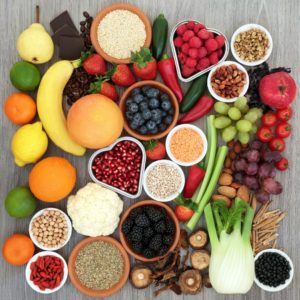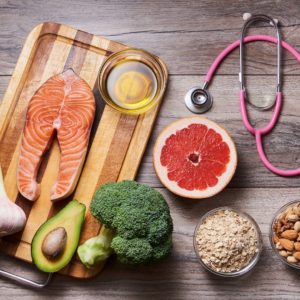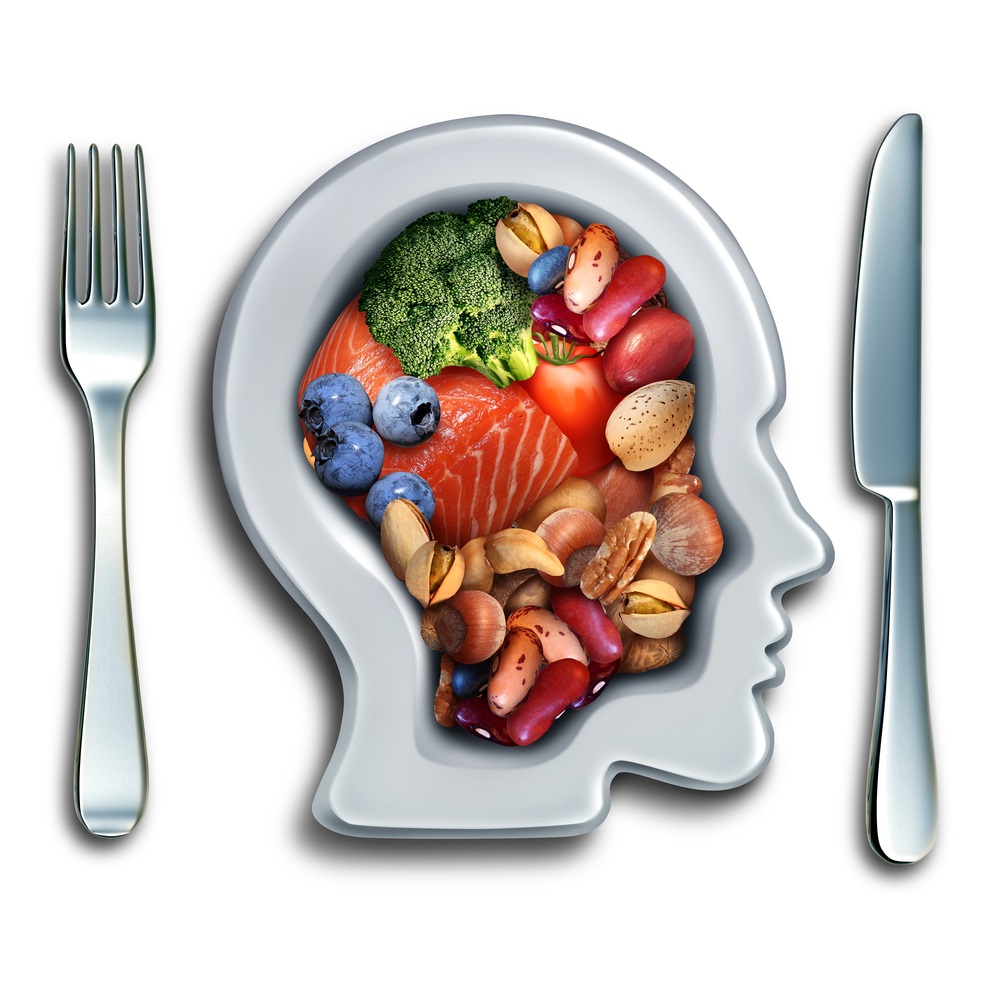 Is there a correlation between diet and lifestyle diseases and if so, what can be done? I’m sure you have heard the saying: you are what you eat.
Is there a correlation between diet and lifestyle diseases and if so, what can be done? I’m sure you have heard the saying: you are what you eat.
Even more so is the fact that your diet can heal or harm you. Your diet can result in better aging or serious health complications and premature death.
You would think that since medical care has advanced in the past decades, the incidence of lifestyle, chronic but preventable diseases would have decreased.
However, junk food has become more accessible to the masses, which is often cheaper. It is also loaded with artificial ingredients making them more desirable to a vulnerable population.
Not sure how diet and lifestyle diseases are associated?
Let’s explore the most dangerous and most frequently occurring of the lot:
Lifestyle Disease: Type 2 Diabetes
 This is one of the most well-known lifestyle diseases, caused primarily by obesity, overweight, overconsumption of sugar-heavy food, and compounded by inactivity.
This is one of the most well-known lifestyle diseases, caused primarily by obesity, overweight, overconsumption of sugar-heavy food, and compounded by inactivity.
Type 2 diabetes brings with it a host of metabolic disorders since insulin acts in a dysfunctional manner interfering with normal metabolism.
As the disease progresses, insulin gets progressively “desensitized” and unable to do its work.
This allows high blood sugar levels to wreak havoc on other organs and body systems.
Lifestyle Disease: Obesity
Though not necessarily viewed as a disease, obesity is a worldwide health problem with catastrophic global implications.
Obesity in itself is common to many other diseases. In fact, it is even associated with the development of other symptoms not classically considered to be caused by diet.
This includes diseases such as arthritis. Today as many as one in two Americans may be classified as obese.
Lifestyle Disease: High Blood Pressure
 This disease has a genetic influence, but the deciding factor is your dietary lifestyle.
This disease has a genetic influence, but the deciding factor is your dietary lifestyle.
Diets that are higher in sodium, fat, and processed sugars contribute the most to the development of high blood pressure.
Blood pressure is a measure of the force that the heart pumps blood with, and also the pressure it is under when relaxed.
High blood pressure significantly predisposes an individual to other heart-related diseases, including stroke.
Lifestyle Disease: Coronary Heart Disease
Coronary arteries are tiny vessels that are responsible for supplying blood to the heart muscles themselves.
Blood flowing through the heart is not for the heart, but rather for other parts of the body. This is why coronary vessels are important.
In coronary heart disease, these important vessels become occluded or blocked. This can lead to diminished blood flow to the important heart muscles.
If the disease progresses far enough, a complete blockage may ensue. The result is that the part of the heart the artery is connected to being unable to receive oxygen or nutrients.
This then leads to the death of the heart tissue.
The death of this heart tissue is what is known as a heart attack, or myocardial infarction.
According to the Centers For Disease Control, almost 900,000 Americans die prematurely every year from lifestyle diseases.
This includes heart disease, stroke, and cancer. It is important to note that between 20% to 40% of these deaths are preventable.
More often than not, it is lifestyle choices that dictate these conditions.
Lifestyle Disease: Cancer
 One of the biochemical changes that occur when consuming nothing but a poor diet is increased oxidation and inflammation of cells.
One of the biochemical changes that occur when consuming nothing but a poor diet is increased oxidation and inflammation of cells.
Under normal circumstances, cells have a “switch” that programs the maximum amount of time they should live, before naturally dying (apoptosis).
However, some cells may randomly undergo mutations, which render the off switch inoperable.
The result? That single cell keeps growing, reprogramming other cells to do the same.
Think of it as a zombie who infects healthy others and so it continues.
This is why a diet high in phytonutrients and lots of antioxidants is important for removing the triggers that could start this cascade.
Lifestyle Disease: Tooth Decay
Considered minor by many, but actually dangerous on much deeper levels is tooth decay.
When left unchecked can host a range of dangerous microorganisms that affect numerous organs. They may be seemingly unrelated but are a result of a diet high in sugar.
Your Best Choices In Heart-Healthy Foods
 Did you know that heart disease is the number one cause of death globally? Yes, chances are high that you personally have known someone who has died from a heart-related complication’
Did you know that heart disease is the number one cause of death globally? Yes, chances are high that you personally have known someone who has died from a heart-related complication’
This fact should serve as a wake-up call. However, many people do not heed such information.
Instead, the people keep getting sicker, fatter, and unhealthier. In fact, people continue to stuff themselves with processed and junk foods that offer little nutrients.
This eventually paves the way for more heart-related deaths to occur.
The American Heart Association reports that eating mostly processed foods causes at least 2 million heart-related deaths around the world each year.
The World Health Organization states, “Diet has been known for many years to play a key role as a risk factor for chronic diseases. What is apparent at the global level is that great changes have swept the entire world since the second half of the twentieth century, inducing major modifications in diet, first in industrial regions and more recently in developing countries. Traditional, largely plant-based diets have been swiftly replaced by high-fat, energy-dense diets with a substantial content of animal-based foods.”
But not all hope is lost.
It is true that many people will refuse to make changes to their diet meaningful enough to reduce the risk of heart disease.
However, you can take control of your health, and the ones you love by making smart informed choices in heart-healthy foods.
These foods do not need to be expensive or fancy. You just need to come up with clever ways to cook them that will make you ask for more.
Starting eating more of these today and extend your life!
Heart-Healthy Foods: Coldwater Fish
 Coldwater fatty fish, such as mackerel, tuna, trout, herring, and wild salmon are praised for their high levels of omega-3 fatty acids.
Coldwater fatty fish, such as mackerel, tuna, trout, herring, and wild salmon are praised for their high levels of omega-3 fatty acids.
It is now well documented for reducing cholesterol levels, inflammatory markers of the heart, and reducing atherosclerotic plaques in blood vessels.
Omega-3’s have numerous other benefits. The ones outlined above are relating to how they can improve your heart health.
Try to consume these coldwater fish two times a week, or consume a fish oil supplement daily for compounded benefits.
Heart-Healthy Foods: Dark Chocolate
 Eating healthy does not mean resigning yourself to a life full of boring, bland foods. You can indulge your sweet tooth as well.
Eating healthy does not mean resigning yourself to a life full of boring, bland foods. You can indulge your sweet tooth as well.
Dark chocolate (mind you, not milk chocolate) that is at least 60% cacao has been documented to have several beneficial effects on health.
These benefits range from improving blood flow, reducing inflammatory processes that could precede a heart attack, lowering blood pressure, and modulating the clotting of blood.
Make sure that the chocolate you consume is at least 70% polyphenols (which may be listed as epicatechin) to get the most benefit from your sweet treat!
Heart-Healthy Foods: Avocadoes
Yes, we know that avocadoes are rich in fat, but the good news is that it is the kind beneficial for health!
Rich in monounsaturated fatty acids (MUFAs), avocadoes are the perfect source of fats in the diet. They promote heart health and help to keep blood vessel walls clean.
Also, they help to regulate cholesterol levels in the blood. They are relatively high calorie, however, so consuming half of one each day should suffice.
Heart-Healthy Foods: Cruciferous Vegetables
These include vegetables such as kale, broccoli, cauliflower, and cabbage. All of these vegetables possess amazing heart-protective abilities.
These effects are mediated primarily via their ability to reduce circulating cholesterol levels, by promoting the excretion of bile acids.
Bile acids are made from cholesterol and following low levels of bile acids. More cholesterol needs to be taken from the blood to make more of this important enzyme.
Heart-Healthy Foods: Red Wine or Grapes
 The benefits of the compound resveratrol, found in red wine, red grape juice, and some members of the berry family.
The benefits of the compound resveratrol, found in red wine, red grape juice, and some members of the berry family.
They have made headlines thanks to their effects on slowing aging and improving cardiovascular health.
Resveratrol is a polyphenol, which reduces inflammation and neutralizes free radicals that could harm blood vessel walls. If you choose to drink wine, just do it in moderation.
Consuming more than two glasses per day has not been proven to yield additional benefits!
Heart-Healthy Foods: Tomatoes
As more and more people learn the benefits of tomatoes, consumption has been increasing. They are rich in potassium and lycopene.
This is an antioxidant that helps prevent unnecessary clotting in the blood and fights off cholesterol damaging free radicals.
A Plant-based Diet Changed My Life Video:
Final Thoughts:
The possibilities to have the life of your dreams and living longer, and stay healthy well into old age are very real.
While heart disease is the number one killer of men and women around the world, it does not mean that it is inevitable.
It is a lifestyle disease that is highly preventable when your diet choices strive to do so.
Take charge of your diet; it will be the best thing you ever do for yourself. There is most definitely a relationship between diet and lifestyle diseases.
If you want to create the best life that you can enjoy and great health in your older years it is best to choose a diet that won’t harm you.






